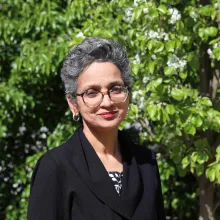The Language of the Rebuffed: A Critical Appraisal of how Policy Advisers Communicate
When we think about expertise and rhetoric, we tend to assume an intrinsic connection to leadership and reasonable success.
Project status
Content navigation
About
After official policy advice to governments is publicly released, governments are often accused of ignoring or rejecting their experts. Commonly represented as politicisation, this depiction is superficial. Digging deeper, is there something about the official advice itself that makes it easy to ignore? The relevant academic literature has not yet grappled with this. Public policy and administration studies tend to conflate policy and political communication, making it difficult to discern the influence of official advisers, while science and technology studies focus largely on science advisers outside government. My research is situated at the interface between the two. Instead of lamenting a demise of expertise, it asks: does the expert advice of policy officials feature characteristics that invite its government audience to overlook or misread it? To answer this question, I critically examine official policy advice and find the language of the rebuffed: expert advisers reluctant to disclose what they know so as to accommodate political circumstances. I argue that this language evades stable meaning and diminishes the democratic right of citizens to scrutinise the work of government.
To test that argument and examine how the language of the rebuffed works, I analysed three Australian policy case studies: the taxation of investment properties, the role of renewables in the national energy mix, and the Iraq war. A gap in methods with which to dissect the phenomenon of rebuffed language led me to construct a new framework informed by rhetorical, organisational and comparative analyses. I uncovered three different language typologies that: fixated on one strand of enquiry but sidestepped wider context; expunged complexity, thereby imparting an appearance of certainty and solid evidence; and routinely raised the presence of uncertainty, leaving advice unusable as evidence. When publicly released, the advice accompanying each proved problematic as means with which to account for political decisions.
My research concludes that, when public institutions furnish governments with such advice, interested publics are effectively excluded from gaining accurate impressions of how decisions are made on their behalf. Only in being able to judge and assess policy rationales can they assemble a picture of what is in their interest. Yet, far from helping assemble that picture, the language of the rebuffed seems designed to break it up.



